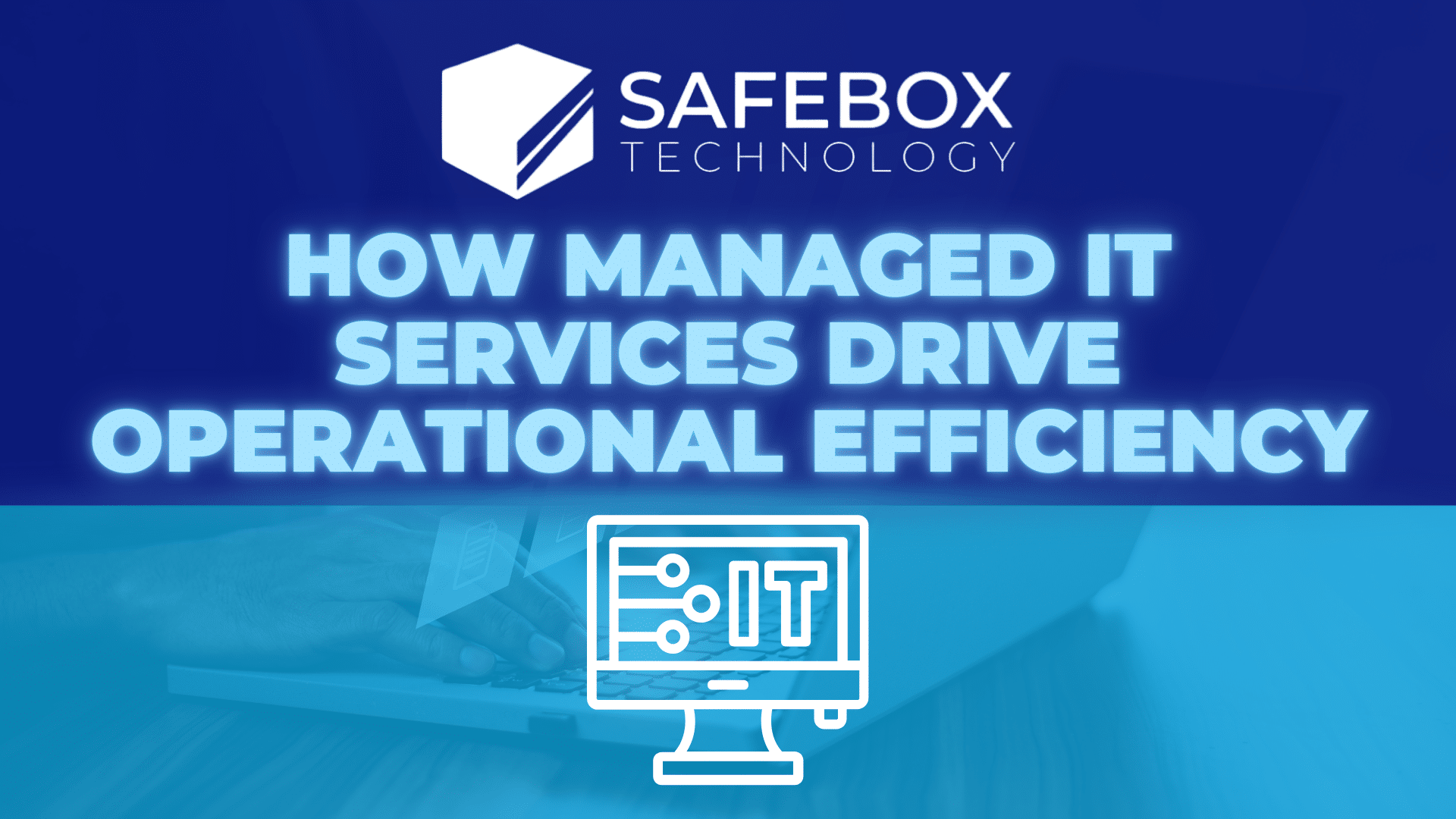Unexpected system crashes can disrupt operations, causing lost productivity, missed deadlines, and added stress for the entire team. This scenario is familiar for companies that do not have a proactive IT management department.
Even minor disruptions can become major operational problems without the proper IT infrastructure. However, with Managed IT services, downtime can be reduced, workflows can be optimized, and efficiency can be improved without overburdening internal resources. That’s where Managed IT for operations management makes a significant impact.
The Role of Managed IT in Streamlining Workflows
Effective workflows are critical for any operations team’s performance. However, many companies face challenges such as using outdated systems, fragmented processes, and technology issues that limit productivity. Managed IT for operations management tackles these issues head-on by offering round-the-clock monitoring, preventive maintenance, and planned upgrades.
Another specific benefit is system integration. Managed IT vendors guarantee that all software, tools, and systems are well connected with no data pockets and allows for real-time collaboration. As reported by Cisco, organizations that implemented managed IT services reported between 50% to 60% improvement in process efficiency compared to those with traditional IT infrastructure.
Another critical feature is automation. Managed IT services can tell the recurring and time-consuming tasks that can be automated, as well as inventory management and scheduling allowing teams to concentrate on other important work. Automation not only simplifies regular operations but also minimizes errors that can be costly in operations management. For example, an automated inventory management system can update the stock in real time, which can help avoid overstocking or stockouts and lead to better supply chain management.
Cloud integration is another area where managed IT can boost workflows. By adopting critical operations to cloud platforms, organizations can achieve flexibility, tunability, and improved data accessibility. This means that teams can work from anywhere, and the data is more secure and can be easily retrieved during an outage.
Reducing Downtime and Boosting Productivity
Downtime is more than an inconvenience; it is a real blow to the company’s wallet. A recent study by Gartner established that IT downtime per minute costs $5,600—every second counts to the operations teams responsible for supply chains, logistics, or customer service.
This is achieved through managed IT, which means minimizing such costly disruptions through remote monitoring, regular system maintenance, and quick resolution of incidents. IT-managed service providers employ sophisticated monitoring solutions that can identify issues before they become problems. This approach minimizes the risk of unexpected downtime, increases efficiency with managed IT and maximizes day-to-day business operations.
In addition, disaster recovery and backup services offer an extra level of cover. In case of a cyber-attack, natural disaster, or accidental data loss, managed IT services help in the recovery process to minimize business interruption.
Cybersecurity is another important factor in achieving uptime. Managed IT services providers establish a multilayered security posture with firewalls, endpoint protection, and regular security reviews to secure networks. With ransomware attacks on operational data rising, strong cybersecurity measures are no longer optional—essential.
Employee productivity is directly increased when downtime is kept to a minimum. Teams do not have to wait for the issues to be addressed. They can work on meaningful work. With managed IT handling infrastructure, updates, and troubleshooting, employees face fewer disruptions, resulting in smoother workflows and increased production.
Enhancing Operations Management with Strategic IT Support
Besides troubleshooting and system management, IT managed services provide the strategic value of optimizing operations management. IT support teams work closely with operations managers to align technology strategies with business goals to achieve efficiency and scalability.
For instance, data analytics can provide real-time data for operations teams to analyze performance, potential problems, and improvement recommendations. Data analysis shows trends and patterns, which help companies make correct decisions on resource allocation, workflow arrangement, and customer satisfaction.
Moreover, managed IT provides cybersecurity services tailored to operations functions and specific operational data and infrastructure needs. These sophisticated threats highlight the criticality of suitable security measures to ensure business operations’ continuation and data integrity. Managed IT services also offer frequent security audits, reporting, and compliance assessments to ensure the company’s IT infrastructure meets industry standards and reduces risks of data leakage and business interruptions.
This shows the critical role of reliable IT support in operations, increasing the organization’s flexibility. As a company grows or changes its business model, managed IT teams can quickly adapt the infrastructure and applications. They do this by deploying new software, scaling cloud resources, or optimizing work-from-home setups to fit the new environment.
Another area of managed IT is employee training and support. When companies give employees the required training, they are 17% more efficient, reducing errors and improving overall workflow.
Partnering with Safebox Technology for Operational Success
The way to increase efficiency with managed IT is by identifying what needs to be fixed and creating systems that enable operations teams to perform. Safebox Technology offers tailored managed IT services that help streamline workflows, reduce downtime, and improve operational efficiency in measurable ways.
With our help, businesses can:
- Optimize daily operations with the help of advanced monitoring and automation.
- Ensure minimal downtime with proactive maintenance and rapid response.
- Enhance security measures to protect critical operational information.
- Align IT strategies with long-term business goals for growth.
- Utilize data analytics for decision-making and continuous improvement.
- Access scalable solutions to meet your business needs, now and in the future.
Ready to boost your operational efficiency?
Discover how Safebox Technology’s managed IT services can change how you manage your business. Contact us today to start on the path to better, more effective business operations.
By embracing efficiency through managed IT, companies can improve their workflows, reduce costs associated with downtime, and enhance productivity to achieve business success. In a world where efficiency is a key determinant of effectiveness and profitability, it is vital to have a reliable, managed IT provider like Safebox Technology to achieve a competitive edge and a clear growth path.

